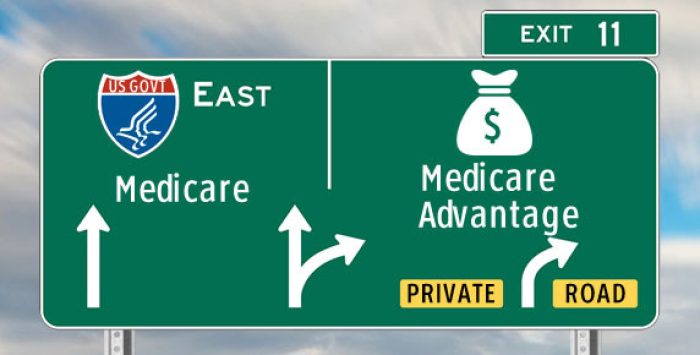Depending on the circumstances, Medicare will pay for both inpatient and outpatient substance use disorder (SUD) treatment, and Medicare Part D will cover various medications used to assist with SUD recovery.
New rules took effect in 2024 to ensure Medicare beneficiaries have coverage for intensive outpatient program services and partial hospitalization services, helping to address some longstanding significant gaps in the coverage that Medicare provides for beneficiaries who are battling a drug or alcohol addiction. These changes stemmed from the Consolidated Appropriations Act, 2023.
So as of 2024, Medicare’s mental health and SUD treatment options include inpatient care (covered under Medicare Part A), along with outpatient care, partial hospitalization, and intensive outpatient programs, all of which are covered under Medicare Part B.
But residential treatment programs are not covered by Medicare. (Legislation introduced in Congress in 2024 would change that.)
Medicare is not subject to the Mental Health Parity and Addictions Equity Act, which means that the program is not required to cover mental health and substance use disorder treatment at the same level that it covers medical/surgical treatments. So Medicare’s utilization management, coverage exclusions, and reimbursement rates can be more stringent for SUD treatment, which is not the case for Medicaid or most private health insurance plans.
How does Medicare cover inpatient substance use treatment?
If inpatient SUD treatment is deemed reasonable and medically necessary, Medicare Part A covers it just as it would any other hospitalization.
The beneficiary will be responsible for paying their Part A deductible ($1,679 in 2025), and can get up to 60 days of inpatient treatment. If inpatient treatment is still considered medically necessary after that, Medicare will cover up to 30 additional days with the beneficiary paying $419 per day in 2025. After 90 days, the beneficiary would start using up their lifetime reserve days if they remained in inpatient care.
Medicare does not have a limit on the number of times a beneficiary can receive inpatient care in a general hospital. But if care is provided in a psychiatric hospital, there is a lifetime cap of 190 days that can be covered by Medicare.
Does Medicare cover outpatient substance use treatment?
Medicare Part B covers outpatient screening and treatment for substance use disorders. As of 2024, Part B also covers intensive outpatient program services and partial hospitalization for the treatment of mental health and substance use disorders.
Intensive outpatient programs provide services for people who need at least nine hours of treatment each week, while partial hospitalization provides services for people who need at least 20 hours of treatment per week and would need inpatient care if they didn’t receive partial hospitalization care.
Before 2024, Medicare covered partial hospitalizations for mental health care, but not if the person’s primary diagnosis was a substance use disorder. So coverage was only available if the person also had a primary mental health diagnosis other than the substance use disorder. That restriction is no longer part of Medicare’s partial hospitalization coverage. If a patient receives partial hospitalization services covered under Part B, the patient pays 20% of the Medicare-approved amount for each service they receive (after meeting the Part B deductible), and the patient also pays coinsurance for each day of partial hospitalization care.
Medicare beneficiaries have access to a fully covered alcohol misuse screening once per year. Based on the outcome of that screening, Part B will also pay for up to four primary care counseling sessions with a provider who accepts assignment with Medicare.
Medicare Part B also covers “Screening, Brief Intervention, and Referral to Treatment,” (SBIRT) if it’s considered “reasonable and necessary.” SBIRT is designed to provide intervention and treatment for people who are in the early stages of a substance use disorder, or who might be at risk of developing one.
The outpatient primary care counseling can be provided in an office setting or via telehealth, as both are covered under Medicare Part B. And Part B also covers opioid addiction services provided by a Medicare-enrolled opioid treatment program.
Does Medicare cover residential SUD treatment programs?
No, Medicare does not cover residential treatment programs for substance use disorders. Treatment for mental health and substance use disorders can be inpatient, outpatient, or residential, depending on the patient’s circumstances and needs.
Residential programs for SUD treatment are a step above partial hospitalization but a step below inpatient care. The patient lives at the residential facility for what can be an extended period of time, but does not need the level or intensity of care that would be provided during an inpatient stay.
As noted above, Medicare covers both inpatient and outpatient care (including intensive outpatient program services and partial hospitalization, as of 2024), but the program does not provide coverage for residential SUD treatment. Legislation introduced in 2024 would change that, if enacted into law.
Medicare does cover skilled nursing facility (SNF) care following an inpatient hospitalization. But the patient must have a need for physical or occupational therapy, which would mean that the preceding hospital stay and the therapy in the SNF would have to be related to something other than a SUD.
Does Medicare Advantage cover substance use treatment?
Medicare Advantage plans are required to cover the same services that Original Medicare (ie, Parts A and B) covers, but the specifics of the coverage can vary considerably.
Medicare Advantage plans create their own provider networks, and the out-of-pocket costs for various treatments will be quite different from one plan to another. (Note that Medigap plans cannot be used to cover out-of-pocket costs under Medicare Advantage, as Medigap only works with Original Medicare). In addition, Medicare Advantage plans tend to have prior authorization requirements for many services, including substance use disorder treatment.
In some areas, there may be Medicare Advantage Special Needs Plans (SNPs) that are specifically designed for people with chronic addiction to alcohol or drugs, although these do not appear to be widely available.
Louise Norris is an individual health insurance broker who has been writing about health insurance and health reform since 2006. She has written dozens of opinions and educational pieces about the Affordable Care Act for healthinsurance.org. Her state health exchange updates are regularly cited by media who cover health reform and by other health insurance experts.
Footnotes
Tags: substance abuse




